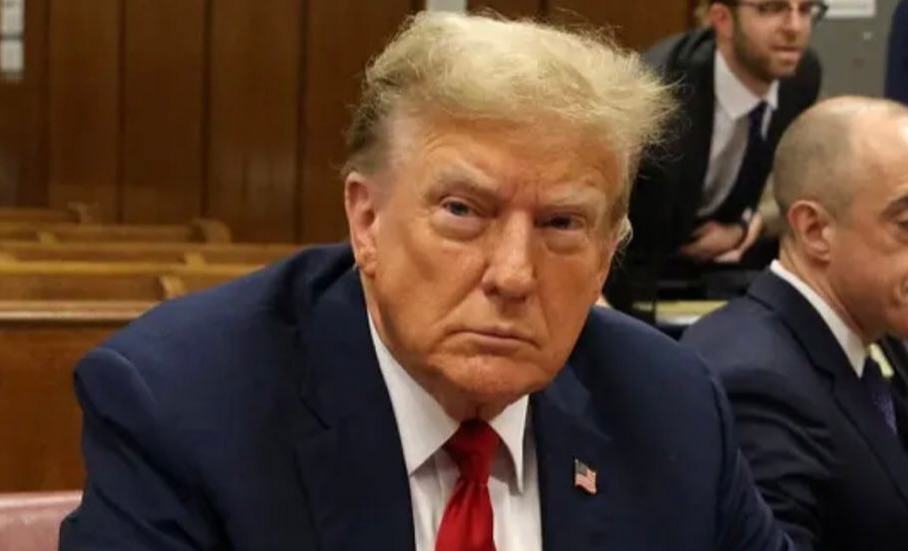After more than five weeks, countless hours of testimony, and a mountain of documents, a New York judge instructed a jury to make a historic decision: whether Donald Trump is guilty or not guilty of a crime.

On Wednesday, a day after both sides presented their final arguments, Justice Juan Merchan spent over an hour delivering deliberation instructions, reviewing each charge and detailing the elements of the alleged crime.
He explained to the 12-person jury the standard prosecutors must meet to convict the former president: guilt beyond a reasonable doubt.
Also Read:- Robert De Niro Blasts Trump as ‘Clown’ Threatening Democracy at Biden Campaign Event
“It is not sufficient to prove that the defendant is probably guilty,” Justice Merchan told the court. “In a criminal case, the proof of guilt must be stronger than that.”
The former president has pleaded not guilty to 34 counts of falsifying business records related to a hush-money payment made to adult-film star Stormy Daniels, who claimed she had sex with Mr. Trump. He denies the encounter.
During the morning court session, Justice Merchan provided various guidelines, advising jurors not to base their decisions on biases or the criminal convictions of other witnesses in the case.
Most crucially, he elaborated on the prosecutors’ complex felony case against Mr. Trump. They allege he falsified a reimbursement to his fixer for the hush-money payment to conceal other crimes: violations of state and federal election laws and tax laws.
He told the jury that prosecutors do not need to prove these secondary crimes, nor do jurors need to agree on which specific one Mr. Trump committed. However, they must reach a unanimous verdict on each of the 34 counts.
Also Read:- White House Defends Israel Amid Escalation in Rafah, Clarifies ‘Red Line’ Stance
From the start, the defense has denied any wrongdoing and sought to discredit testimony from the prosecution’s key witness, Mr. Trump’s former fixer and convicted felon Michael Cohen, to undermine the larger case.
By Wednesday afternoon, jurors left the Manhattan courthouse without a verdict. However, they returned in the afternoon to request specific testimony to aid their deliberations.
When they reconvene on Thursday morning, they will review the requested testimony and continue deliberating whether Mr. Trump will become the first former president convicted of a felony.
Here are the possible outcomes:
1. If Trump is found guilty
All 12 jurors must agree Mr. Trump is guilty beyond a reasonable doubt for prosecutors to secure a conviction. This would be the worst-case scenario for Mr. Trump, who would become the first major party candidate running for US president as a felon.
He would almost certainly appeal the verdict. His lawyers have already unsuccessfully argued for a mistrial multiple times. If found guilty, he faces a maximum sentence of four years per count, or a lesser punishment of probation and a fine. Most experts believe the 77-year-old is unlikely to face prison time.
“It is a non-violent offense. It’s the lowest of the [felony] offenses,” said former Brooklyn prosecutor Julie Rendelman. “With no record, his age, you name it, it would be highly unlikely.”
If Mr. Trump were sentenced to prison, it would pose a logistical challenge for court officers and Secret Service staff required to protect him in prison.
Also Read:- Former Baltimore Top Prosecutor Marilyn Mosby Spared Prison for Mortgage Fraud and Perjury Charges
2. If Trump is acquitted
If all 12 jurors find prosecutors have not proven Mr. Trump’s guilt beyond a reasonable doubt, he would be acquitted of the felony charges, a significant blow to the Manhattan District Attorney’s Office. It would be a major victory for the former president as he seeks to return to the White House. While a convicted felon can legally run for US president, a guilty verdict could damage his electoral prospects.
An acquittal would mean the prosecution, despite extensive testimony and questioning of high-profile witnesses, including Ms. Daniels, Cohen, and a former senior Trump aide, failed to convince the jury.
Mr. Trump has repeatedly complained about the trial, claiming that Judge Merchan and the case against him are unfair and asserting his innocence.
He faces three other criminal cases, including charges related to election interference and the January 6 Capitol riot, but this case is widely seen as the most likely to go to trial before the November 5 election.
3. If there’s a hung jury
If the jurors cannot unanimously agree on a verdict, this will result in a hung jury. Justice Merchan may instruct them once or twice more to try to reach a verdict. If they still cannot, he would declare a mistrial. Prosecutors would then need to decide whether to retry the case.
